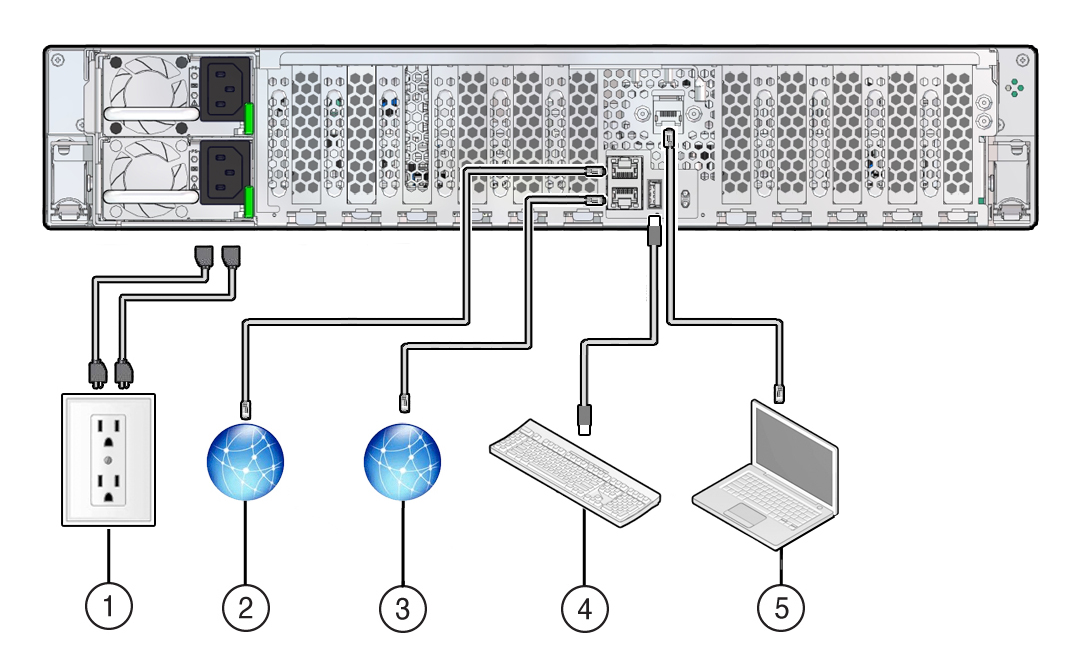X7-2L Back Panel Connectors and Ports
The following figure shows the locations of cable connectors and ports on the back of
the Oracle Server X7-2L and the cables and devices that you connect to them.

|
|
|
|
1
|
Power supply 0 input power
Power supply 1 input power
|
The server has two power supply connectors, one for each power
supply.
Do not attach power cables to the power supplies until you have
finished connecting the data cables to the server. The server goes
into Standby power mode, and the Oracle ILOM service processor
initializes when the AC power cables are connected to the power
source. System messages might be lost after 60 seconds if the server
is not connected to a terminal, PC, or workstation.
Note -
Oracle ILOM will signal a fault on any installed power supply
that is not connected to an AC power source, since it might
indicate a loss of redundancy.
|
|
2
|
Network management port (NET MGT)
|
The service processor NET MGT port is the optional connection to
the Oracle ILOM service processor. The NET MGT port is configured by
default to use Dynamic Host Configuration Protocol (DHCP). The
service processor NET MGT port uses an RJ-45 cable for a
10/100/1000BASE-T connection.
|
|
3
|
Ethernet port (NET 0)
|
The Ethernet port enables you to connect the system to the
network. The Ethernet port uses an RJ-45 cable for a 100/1000BASE-T
connection.
|
|
4
|
USB port
|
The USB port support hot-plugging. You can connect and disconnect
a USB cable or a peripheral device while the server is running
without affecting system operations.
|
|
5
|
Serial management port (SER MGT)
|
The service processor SER MGT port uses an RJ-45 cable and
terminal (or emulator) to provide access to the Oracle ILOM
command-line interface (CLI). Using Oracle ILOM, you can configure
it to connect to the system console.
Note -
This port does not support network connections.
|
|

